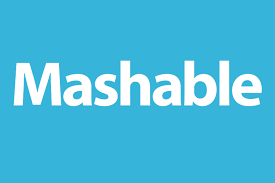
Writing an effective resume means targeting your audience.
It might be easier to write one resume and then send it to every job you are applying for. However, this isn’t the best way to reach your target audience. When writing an effective resume, you need to focus on the company you are applying to and the particulars of the job. An executive resume service can help with the task of writing a professional resume.
Create a Core Resume
The starting point for your professional resume will be the same for every resume you send in to a job because your core skills and past work experience won’t change. When you start building this resume, you can start with the same facts and save it to your computer so you can easily make changes for the next job you may apply for. This core resume will make up the bare bones, which can then be tailored to your exact needs as you continue through your job search.
Research the Job Particulars
Once your core resume is complete, the next step in writing an effective resume is to do some research on the job you’re applying for. Not only do you need to determine which of your skills and past work experiences relate to the job, but you also need to look at the company and its culture. This information is invaluable in helping you build a resume that will impress the right people and show them why you are a good fit for their position and their company.
Customize the Core Resume
Once you have this information, you can work on making the necessary changes to your core resume. The more specific you are in adding details, the more they will realize you took the time to learn about the company and the position they are offering. An executive resume service has the experience necessary to help you pull it all together and create a resume that will capture the attention of the individual responsible for hiring, increasing the chances you will land the job.
Writing a professional resume is about more than just creating one resume and copying it repeatedly for every job you are thinking about applying for. Unfortunately, these general resumes won’t produce the impact you’re looking for. Instead, you should work with an executive resume service to create a custom-tailored resume so you can make the best first impression on any potential employer.

The best executive resume format isn’t a template.
Putting together resumes that get you hired can be a time-consuming process so why wouldn’t you use any help you could get? A template may seem like the best executive resume format, but is it really? While a template may make the process of creating a resume faster and easier, hiring an executive resume service to help you stand out is the best option.
You Must Stand Out
When you consider how many people apply for every job listing, you’ll quickly realize the importance of making your resume stand out in the crowd. When your only way to make a great first impression is through your resume, you need to make sure it tells who you are and what you can offer a company. If your resume looks just like everyone else’s, your chances of landing the job you want are drastically reduced.
Sub-Standard Format
If you truly want the best executive resume format, a template isn’t going to get the results you want. When you search for resume templates online, you will uncover thousands of results. However, do you know how put those templates together? Many of them were created by individuals who don’t have experience writing resumes that get you hired. They may have experienced success getting a job with the format and feel they could help others out. Perhaps they haven’t even submitted a resume in that format but think they have all the answers. You shouldn’t trust your future career to just anyone.
Use Them as a Starting Point
While resume templates aren’t the best way to create your resume, you can still use them as a launching pad for creating a resume that will get results. Look at several options and determine what you like best in each of them. You can compile components from multiple resume templates and arrange them into your own personal resume that showcases what you have to offer. Using templates to create a custom layout will produce the best results.
Using a resume template doesn’t mean you won’t have any chance of landing the job, but it will make the process more difficult. If you aren’t using the best executive resume format, you can expect fewer call backs because you won’t stand out from the hundreds or thousands of other resumes received. This is why many people hire an executive resume service to help them create an outstanding resume that highlights their assets and makes them more appealing to prospective employers. When you move away from template resumes and venture into custom resumes that get you hired, you will see better results in your job search.

A professional resume writing service can help you get attention.
How you represent yourself with your personal branding can play a significant role in whether you are hired. However, it’s not all about hiring a professional resume writing service to write resumes that get you hired. In some cases, you need a executive recruiter who will be by your side to help you make the right career move. There are several reasons you should consider working with a recruiter as part of your job search.
There’s No Charge to Job Seekers
Recruiters are typically hired by employers to help them find the ideal candidate for any open positions. These recruiters have the experience and skills necessary to determine which applicants are the best fit for the job requirements. This means most recruiters are available free of charge to the job seeker. The person you hire will be paid by the employer for their services.
Access the Hidden Job Pool
Not all companies advertise their open positions where anyone can see and apply for them. In these situations, having a resume that gets you hired won’t produce results because you can’t see the available position. C-level recruiters often have a list of unpublished job openings they can provide so you can apply to ones in a much smaller pool of applicants.
An Inside Job
Not only do recruiters have access to job openings that aren’t published elsewhere, but they often have close working relationships with companies in their field. A professional resume writing service may be able to make your resume look great, but if you can’t get it in front of the right people, you won’t get hired. A recruiter can help you go over your resume and make changes that will make you more appealing to the job for which you are applying.
Avoid Overexposure
It may not seem like a bad idea to spread your resume as many places as you can, but distributing your resume in too many locations can have a negative effect on your ability to get the job you want. Employers look for individuals who may be in high demand but aren’t catering to a dozen other similar companies at the same time. When you use a recruiter in your job search, employers won’t stumble on your resume on a job board and pass you by because you may already be entertaining other offers. Instead, they will feel like you are an exclusive opportunity, boosting your chances of landing an interview and the job.
C-level personal branding is an important aspect of writing resumes that get you hired, but it’s not the only factor. Working with a executive recruiter can provide a number of benefits that can give you the advantage in the often-competitive business world. A recruiter can take some of the anxiety out of your job search and increase the chances you will find the right career path more quickly than working on your own.

You c-level resume should use keywords to attract attention.
Keywords in a resume? Who needs them? If you’re trying to land a c-level position, you need them! More than three quarters of employers rely on keywords to narrow their vast pool of applicants to choose the most promising and bring them to the interview stage.
Why Keywords Are Important in a Resume
Recruiters looking for the winning c-level resume for a specific position rely on automated resume databases to cull through hundreds and often thousands of online resume submissions collected by a firm. When a recruiter places an ad for a position opening, he or she usually includes a punch list of must-have criteria for the successful applicant.
Similarly, when sorting through resumes of applicants responding to the position, he or she will use must-have keywords. These might include the name of the city where the position is based, specific skills, required foreign languages, programming languages or educational degrees. The recruiter enters these keywords into his or her search criteria and may immediately cull 4,000 resumes down to 76. He or she will then quickly scan those 76, spending literally seconds on each one to decide if it is a “keeper.” The more must-have keywords he or she sees in that brief scan, the more likely that candidate will move to the next stage and land a phone or in-person interview.
Effective Ways to Use Keywords to Boost Your Interview Odds
You can use keywords to your advantage when you know how important they are. When you are applying for a c-level job, jot down buzz words from the punch list of “must-have” qualifications in the job posting. In addition to using these words often and as near the top of your resume a possible, use them in your cover letter. Recruiters expect a good executive resume cover letter to be concise and to the point and to spell out quickly why they should take a closer look at the resume it is introducing. Fitting in the most important keywords without appearing to “keyword stuff” your cover letter is an art. The best approach is to enlist guidance from the best resume writing service you can find to boost your chances.
Beyond creating an intriguing executive resume cover letter, it’s a good idea to create a “skills” punch list to include in your resume. Regurgitate the “must-haves” from the job listing into a “skills” section for your resume. Last but not least, use keywords naturally throughout your resume to boost the odds a recruiter’s automated system will flag you as an outstanding candidate.
Invest in Skilled Professional Help
When you’re seeking a c-level position, your c-level resume should change with each job you apply for. This can be time-consuming and a bit mind-boggling if writing isn’t your forte. Don’t risk losing out on a perfect position because your resume or cover letter wasn’t up to par. Do yourself a favor and hire a pro with a proven track record. Contact us and leave the details to us.

With all kinds of action happening online these days, many job seekers decide that the local job fairs are a waste of time. But, really, attending the local job fairs is one of the most effective things you could do if you do it right. Here’s why:
Networking
A job fair is the best chance you have to meet face to face with the people who will evaluate your resume before you submit it. What’s more, you can hand that resume to them and they have a person to remember when they read it. It’s a great opportunity to connect with people who you know are looking for the right candidate to fill a position, because if they didn’t need to hire more people, they wouldn’t be at the job fair. What’s not to like about that?
But you’ll need to treat it as carefully as you would treat an interview:
- Do your homework and know something about the companies that will be at the job fair
- Dress as you would for an interview, being well-groomed and professional in appearance
- Carry a business-like tote or briefcase for all the stuff you’ll collect
- Carry a folio of resumes printed out to hand to recruiters
- Attend workshops being offered
- Be prepared to take notes at workshops and when meeting people so you remember details
- Relax and enjoy the event
Hand Out Professional Resumes
A professional resume doesn’t have to be one that’s written by a professional, but it should look like it. Using a template for your resume means your resume will look like everybody else’s and why should anybody remember which one is yours? You have more to offer than a cookie-cutter template of a resume, and it is worth the investment to do it.
You can start by looking at the category of Resume Writing on this blog. There are many other resources, too. The thing to remember is that actually handing a well-written resume to a recruiter at a job fair will impress twice–once when you hand it over in person and again when they read it.

We all know people who can talk themselves into, or out of any situation. They have a natural penchant for negotiating, and without necessarily being aware of it – they understand the psychology of negotiation. So what are these skills that some of us have? How they can be learned? And, how can we use psychology to help with negotiating a better salary? Well, read on and I will explain…
Reciprocation
There is a trigger that will set off a lot of people’s desire to reciprocate a good deed. We have all probably experienced this from time-to-time, and maybe you are aware of the saying, ‘one good deed deserves another.’ Well, think about it. If you have not done anything noteworthy for your manager in recent memory, why do you expect anything back? Of course it should not always work like that, but it will go a long way in your favor if you have.
Consistency
Being consistent fills people around you with confidence. They know they can rely on you, or turn to you if they need something. There is a psychological advantage on your side if you have been consistent in the past. While negotiating a salary increase, if you can display a consistent nature it will help your case when making claims about your future performance.
Authority
When someone in a position of authority asks for something to be done, people listen. When negotiating your salary you are dealing with a manager, or other authoritative figure. But you can also set yourself as an authority.
Knowing your job role in more depth than anyone else sets you up as a person of authority for your position. Negotiating a better salary for the position will be a lot easier if you can substantiate this.
Understanding the psychology behind negotiating salaries, and how you are coming across while negotiating will have a big impact on the outcome. Think about the points raised above, and other ways you can give yourself a psychological advantage before arranging that meeting.
++++
Noel Griffith is a webmaster at https://www.careerswiki.com and works as a recruitment consultant and career advisor. He focuses on helping people find their ideal career, and giving ongoing advice in regard to finding a progressive career path to match their skill set. With a strong belief in communication and networking, Noel’s goal is to help connect the right people and forge strong professional relationships. To contact Noel you can email him at careerswiki1@gmail.com
Ask The Experts: Cover Letter and Resume Transformation
Resume Writing

Recently, I was honored to be among industry experts discussing current trends in resumes and cover letters on a Mashable Biz Chat. Tracy Edouard, Marketing and Communication at Mashable, gives us the highlights of Mashable’s #BizChats Twitter chat on how to transform your resume and cover letter for the better and you can see different professional perspectives on these questions:
- Is it important to have both a cover letter and resume when submitting job applications? Why or why not?
- How can someone truly make their resume stand out from the competition?
- What features are important to showcase on someone’s resume? (GPA, school, skills, etc.)
- What are employers and recruiters looking for in resumes and cover letters?
- What are the biggest cover-letter mistakes professionals are making?
- How important is design when it comes to creating a resume and cover letter?
- What are the top resources available for resume and cover letter support?
- What final tips do you have about creating great resumes and cover letters?
These are all good questions. And the input from the various professionals involved is valuable without a doubt. But do you know what the most striking thing about this Twitter chat is?
There Isn’t An Excuse For An Ineffective Resume & Cover Letter
We have the ability to pull experts from all over the place for a chance to pick their brains. Every expert tweeting is linked to a site with a wealth of information, and there is no reason a job seeker with access to an expert can’t get expert advice. Much of that advice is free, too!
The overwhelming consensus is that you can have an effective resume and cover letter by putting the right effort into it. Sometimes that effort involves doing the research on current trends and revamping it yourself, sometimes it takes a resume critique from a professional to help you see what needs to be done, and sometimes your best investment is in a professional resume service.
The help you need to have a powerful resume and cover letter is out there and you can find it easily, along with a wealth of career advice from experts in your field.
The Top 5 Skills Sought By Employers In 2014 (and what that means for 2015)
Resume Writing

Did you ever wonder what the global job market is actually looking for? LinkedIn is in a unique position to find out, so after analyzing over 330 million LinkedIn member profiles, they came up with The 25 Hottest Professional Skills of 2014. Of that 25, the top 5 are:
- Statistical Analysis and Data Mining
- Middleware and Integration Software
- Storage Systems and Management
- Network and Information Security
- SEO/SEM Marketing
What This Means For 2015
These were the top 5 skills that employers and recruiters were looking for last year. These are the skills that got people hired. Does that mean you should drop your current career plans and get a degree in statistical analysis? Not necessarily — but it does mean that technological understanding is something that cannot be ignored. Any candidate that has the skills needed for a particular job PLUS the global perspective of how that job fits into the bigger picture is a lot more prepared to compete.
If your resume doesn’t mention the technology you know how to utilize, it’s time to update your resume. In this increasingly interconnected world, we need professionals who can integrate the work they do with the global presence of the company that employs them. Each one of the “top skills” looked for attest to the fact that business is supported by technology and the IT department isn’t just tech support.
At the very least, taking the time to see what these areas consist of and how they are used in your industry prepares you to be someone who can see how their part fits into the mission of the company and gives you insight on the challenges of management and leadership. If you are interested in executive responsibilities, executive perspective sees how it all fits together.
If I were to make any predictions for 2015, it would be that most of the skills on 2014’s list will still be important. They may change positions, but like technology, they aren’t going away.








